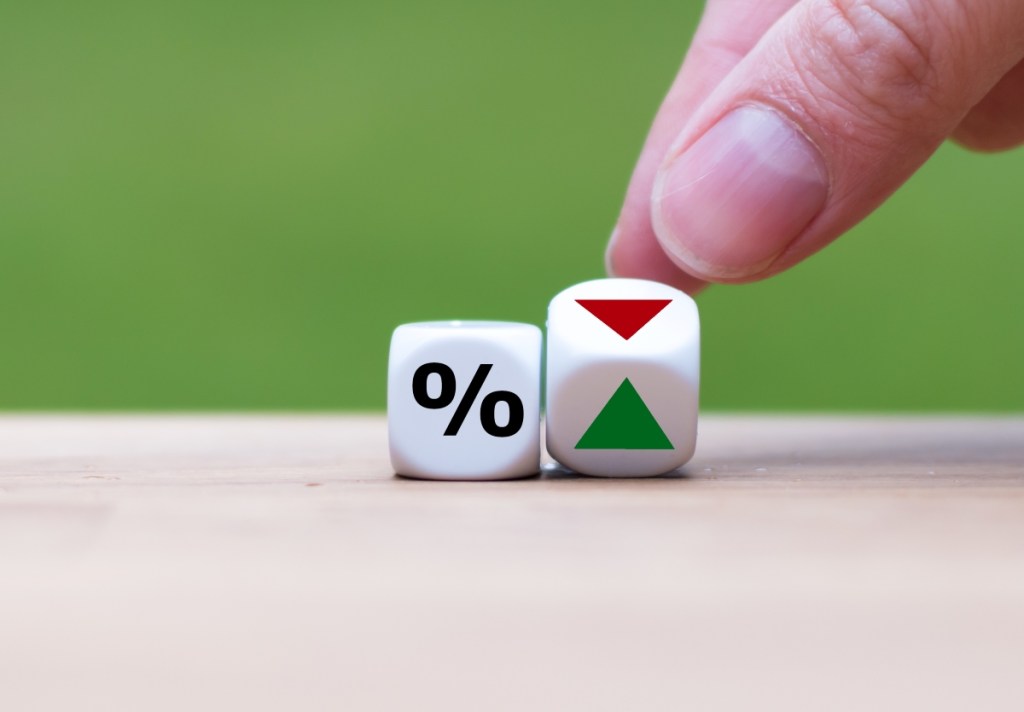As the Federal Reserve announced yet another 75 basis point interest rate hike Wednesday, loan officers and lending executives — already well aware of the news — were looking ahead, questioning whether mortgage rates will spike or dip in the aftermath.
Even economists are divided on what’s to come: Some believe rates have already peaked; others say they’ll climb until or unless the nation’s economy officially enters a recession.
But they do agree on one thing: Higher interest rates will quell housing demand, which will allow inventory to rebound and, eventually, spur the return of reluctant buyers.
“For consumers, this (rise in interest rates) means that unless the economy shows additional signs of tipping into a recession, mortgage rates are likely to trend higher, which will be a drag on housing demand,” said Danielle Hale, chief economist at Realtor.com
Mortgage rates leading up to June’s Fed rate hike surpassed the 6% level as higher-than-expected inflation data triggered volatility in the market, which led to turbulence in mortgage rates. Since the Fed’s June interest rate increase of 75 bps, mortgage rates in recent weeks crept closer to 5.5%.
Lawrence Yun, chief economist for the National Association of Realtors, doesn’t believe raising interest rates by 75 bps will have an effect on mortgage rates. The long-term bond market, off which mortgage rates typically are based, “has mostly priced-in all future actions by the Fed, and may have already peaked with the 10-year Treasury shooting up to 3.5% in mid-June,” Yun added.
“It is possible that the 30-year fixed mortgage rate may settle down at 5.5% to 6% for the remainder of the year,” Yun said. “Still, mortgage rates are significantly higher now compared to one year ago, which is why home sales have been falling.”
An executive with the Mortgage Bankers Association (MBA) also believes mortgage rates have possibly peaked and could hold steady between 5% and 5.5% through the rest of 2022. An improvement from the 6% mark, yet it’s still significantly higher than early 2021’s 3% level.
“There is a tug-of-war in market expectations, between the persistently high inflation numbers and resulting rapid Fed hikes, and the increasing risk of a sharp slowdown and possible recession,” said Mike Fratantoni, senior vice president and chief economist for the MBA.
If mortgage rates peak, Fratantoni said, “potential buyers who had been scared off by the rate spike, might find their way back to the housing market.”
There were clear consequences from the last spike. Sales of newly built homes fell more than 8% in June from the prior month and were 17% lower than June 2021, according to the U.S. Census and the Department of Housing and Urban Development. Signed contracts to purchase existing homes declined a wider-than-expected 8.6% in June from May and dropped 20% from June 2021, the National Association of Realtors said.
Home prices also grew, although at a slower pace. The national home-price growth slowed down in May, posting a 19.7% annual gain compared with a 20.4% increase in April and a 20.6% jump in March, according to the S&P CoreLogic Case-Shiller national home price index.
Yun sees home sales coming back if mortgage rates stabilize near the current rates and believes home sales will be dependent on jobs and consumer confidence.
“Job creations have been ongoing to date. Therefore, home sales could soon stabilize within a few months and then steadily turn upwards from early next year,” Yun said.
Hale, from Realtor.com, said the declining demand and higher costs belie some bright spots for home shoppers.
“While the options are more expensive and more costly to finance, the growing number (of home sales from a year ago) will help the real estate market rebalance, giving potential buyers a much-needed refresh,” Hale said.
Any increase in availability in inventory deserts would be enough to again attract buyers to the market, according to Marty Green, principal at mortgage law firm Polunsky Beitel Green.
“The question is whether the slowdown is a result of most consumers simply pausing a purchase decision while they see where interest rates and home prices settle, or whether they are having to delay a purchase decision indefinitely because of affordability concerns,” Green said.
Some LOs think the increase in interest rates was already baked into mortgage rates, so they don’t expect extreme volatility like last month.
“There was no major panic (like June),” said Christian Dicker, senior loan officer at Motto Mortgage. “I think it’s already priced in the market.”
Dicker suggested a slowdown in the housing market is good, to some degree, because it means less competition for the buyer — a welcome change after months of increasingly intense bidding wars, during which anything less than an all-cash offer came with inherent uncertainty.
“I’ve had more offers accepted in the last two weeks than the last two months. They (homebuyers) are going out looking at four houses and all of them are available. They’re making one or two offers and they’re getting accepted,” Dicker said.
Affordability remains a challenge, but some buyers are “resigning themselves to higher rates, knowing that they’re going to have to pay more if they want the property,” said Coley Carden, vice president of residential lending at Winchester Co-Operative Bank.
“With interest rates increasing and home price appreciation slowing down, demand for homes will stabilize,” Carden said.
Although he doesn’t see 20 offers on every property as he did during the pandemic, Carden still gets inquiries for houses, and even second homes.
“I think what could curtail homebuyer demand is more of a recession — especially if people get reduced hours and start to get laid off,” he said.






